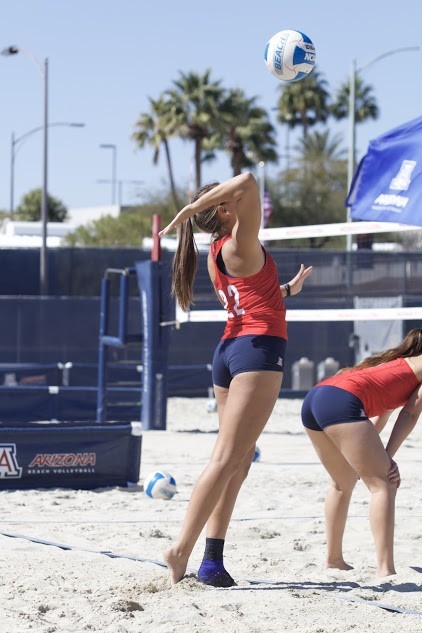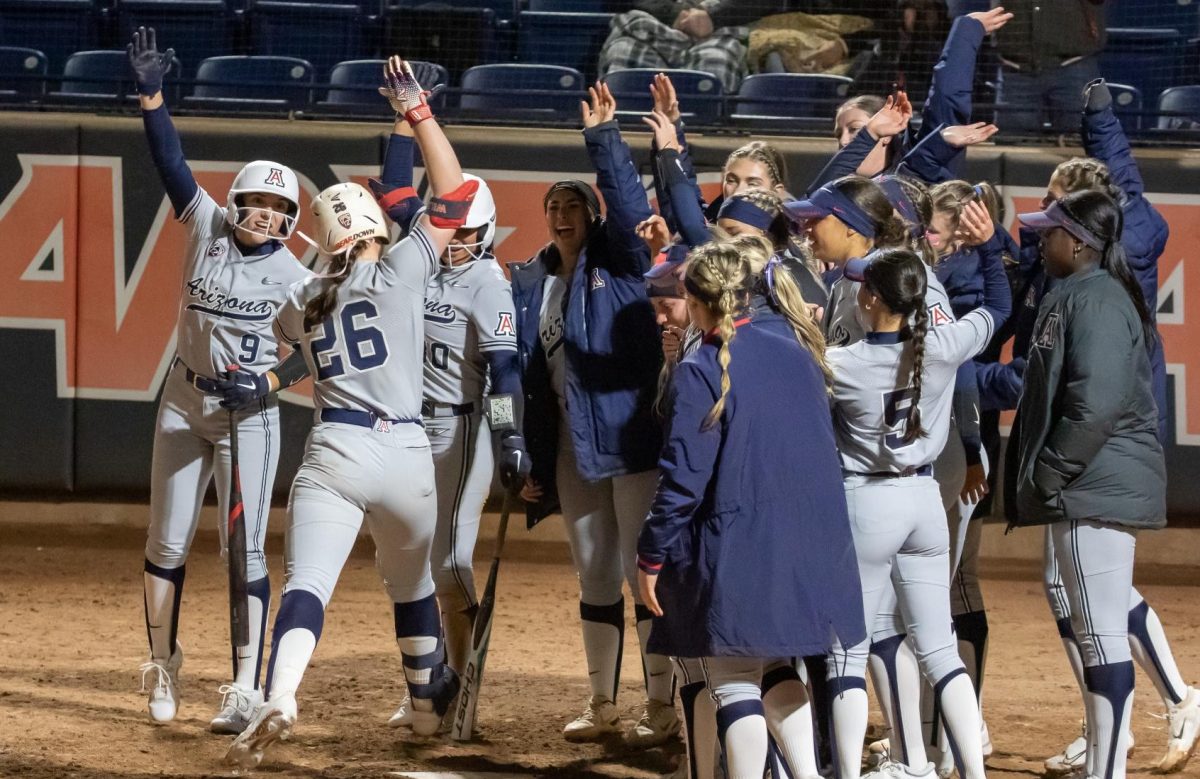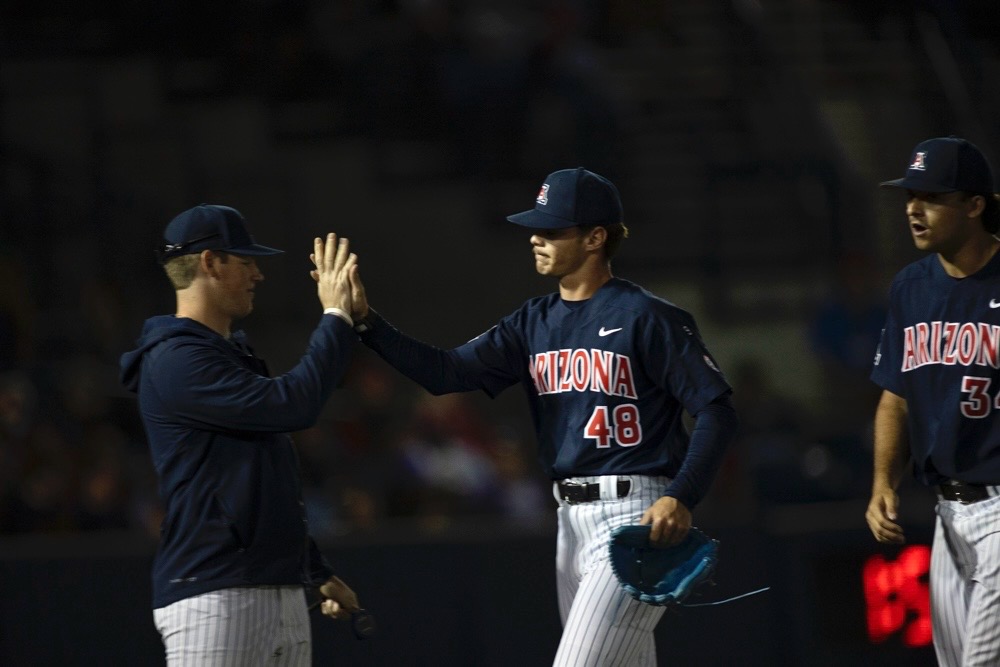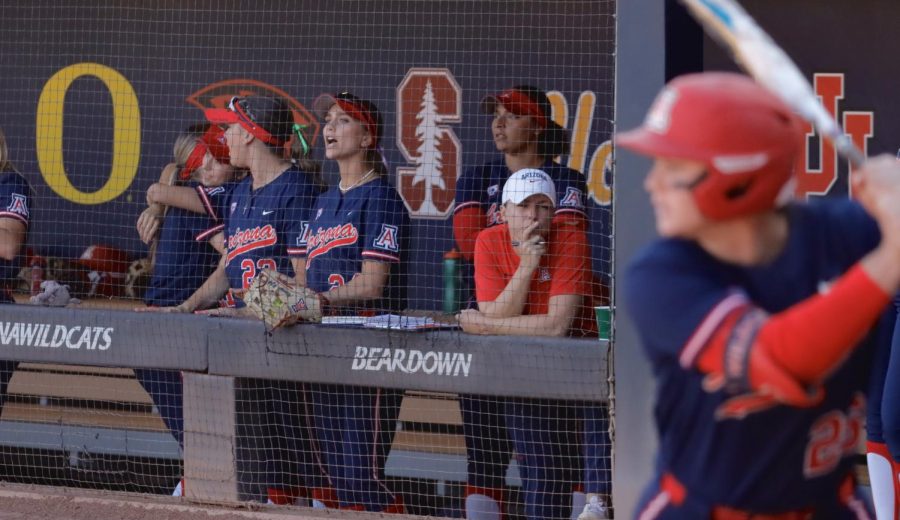After coming home from a long day of soccer matches, then 12-year-old Mia Mason started experiencing terrible headaches. Her mother, a UA indoor volleyball alumna, took her to their family doctor to check out what was happening to her daughter.
It was then that the now-junior beach volleyball student-athlete underwent a CT scan that revealed Mason had a tumor in her brain that was limiting the function of her cerebellum.
The cerebellum is the part of the brain that coordinates and regulates movement. Because of the cerebellum’s imperative function, this meant Mason would not be able to walk for the time being. That was a huge setback to someone who lived for the thrill of being able to play sports.
Throughout Mason’s couple of months in treatment, the Manhattan Beach, California native had an support system. She remembers the UCLA volleyball team and coach coming to visit her during the long days and nights in the hospital room. Mason also remembers friends and family getting together and making purple bracelets for her in support of her fight.
“It was awesome to see everyone get together and do something like that for me,” Mason said.
Treatment was a storm of doctors and surgeries in the hospital, as well as months of recovery for Mason. Mason recalled long days and nights laying in the hospital bed while the doctors would run endless tests on her to get her back to 100 percent.
“Having everybody around me — family, doctors, and my teammates — supporting me through it all really helped a lot,“ she said. “I just wanted to get back to playing again.”
After finishing up her treatment, which lasted a couple months, Mason was declared cancer-free, but that didn’t mean life was completely normal again. Cancer could not stop Mason’s passion for all things sports; in fact, she said it made her passion grow even more. But in order to start playing again, she had to start with the basics: learning to walk again.
“I remember learning how to walk again by using a walker everywhere,” Mason said. “It was very tough.”
For Mason, this meant she had to re-learn how to play sports, namely volleyball. Although she had played a myriad of sports prior to being diagnosed, she decided volleyball was going to be the sport that stuck with her.
“I decided it was best to just choose one sport, and I loved volleyball so much, so I stuck with it,” Mason said.
Although she has been cancer-free for about nine years, Mason still has to travel back to Los Angeles every year to get a two-hour MRI done on her brain and spinal cord as a necessary precaution.
Mason and her mother have paired up with the research team at the University of Arizona Steele Children’s Research Center to make a positive impact on children with cancer. The pair started the Mia Mason Fund for immunotherapy research to support pediatric cancer research.
The process of immunotherapy is a treatment that uses a part of a child’s immune system to fight diseases, such as cancer. The work and funds raised by the Mia Mason Fund will help accelerate the research done toward helping to fight cancer.
“When [the UA Steele Center] reached out to my mother and I, we were super glad because we love doing everything we can to help now, especially since it’s in Tucson,” Mason said.
Despite everything she has been through, Mason has made quite the impact on the Arizona beach volleyball program. In her freshman year Mason went to the NCAA Beach Volleyball Championships, where she competed beside her partner, Kalei Mau, as the No. 6 seed and beat Georgia State in the first round.
This season, Mason had a hand in getting Arizona to be a top 20-ranked program, and some of her best performances have come against top-level competition, such as Washington and Santa Clara.
After everything she has been through, Mason said she knows the love and support from her friends, family and teammates are beyond measure. She has been able to excel on the sandy courts, despite any life-changing challenge thrown at her.
Follow Amit Syal on Twitter.









